As part of our RebBEE-in-Residence series, our RebBEEs are sharing blogs, resources, and links to complement their teachings and evolve the conversation. Click here to learn more about our RebBEE program.
I love musicals. They lift my heart, they make me cry, they make me laugh, and most importantly, they sometimes speak so directly to my Judaism. For me, Judaism is wrapped up in Tikkun Olam, repairing the world. Sometimes that means the obvious things – ending war, famine, oppression. Sometimes that means the less obvious – self-care, embracing our own identities, fighting for our place in the world. As a small queer Jewish woman rabbi, there’s so much that I feel when I listen to the songs of some of these shows about finding your own strength and then using that strength to fight for others. What could be more Jewish than that?
1. Fiddler on the Roof (Available on Netflix until June 30th, Amazon Prime, and Pluto TV)
I know it’s obvious and cliché, but really watch it this time. Take note of every facial expression, every line in the songs. In a time when women’s autonomy was not a thing, Tevye loves and respects the women of his life, constantly putting their needs over his sense of tradition. Even when he cannot accept Chava’s love for Fyedka, he tries so hard to find a way to accept it. He hints at the end that maybe in America he could, because while still in Russia, more than being angry about her marrying outside the faith, he is fearful of her marrying into a people who don’t value the full scope of her humanity or that of her family. Maybe in America, where the Russians aren’t committing pogroms (an organized massacre of a particular ethnic group, particularly Jewish people in Russia or eastern Europe), at Jewish weddings, Fyedka can be part of the family. And speaking of pogroms at Jewish weddings, Tevye’s heavenward look of incredulity at the end of Tzeitel’s wedding scene is heartbreaking and relatable, and perfectly Jewish. The man truly embodies what it is to struggle with God.
2. Evita (available for $3.99 on Apple TV, YouTube, Prime)
This one is much less obvious. Evita does not really address Jews or Judaism in any way, and the movie especially obscures a lot of what was really going on in Argentina at the time. The Broadway show allows the Che character (originated by Jewish superstar Mandy Patinkin) to sing a little more about the violence the Perons perpetuated and the resistance to their fascism. Still, most of those lines were cut for Antonio Banderas’s movie version, and instead, the tension between Eva and Che feels more like the sexual tension of an enemies-to-lovers build. But Peronism was fascism, and as Jews we know that’s something to be very wary of!
Eva and Juan Peron were not officially a part of the Axis powers, but they certainly cozied up to Mussolini and Franco and perpetuated their own fascist policies in Argentina. Their regime paved the way for the Dirty War that would follow and often target Jews (among others) because of the Nazi-influenced conspiracy theory that all Jews were communists. Listen to the words of this rock opera, beyond the cutesy music queues and the lines that are clearly meant to play as jokes. When you really think about them and know the history, they’re not so funny. And none of this is even addressing the sexism in the lyrics and involved in the film’s production!
3. Newsies (both the 1992 movie and the 2017 filmed stage production are available free with a Disney+ subscription, or can be found on Prime, YouTube, or Apple TV for $3.99)
I don’t know about the intention involved in this one. Still, Wiesel’s character seems to me to be making a commentary on the buffer roles Jews often get pushed into in white supremacist societies. Like the moneylenders of Medieval Europe, Wiesel inhabits this position of slight power, managing the relationship between the 1% capitalists who own the means of production and the people who do the producing. Although this middling role has been utilized to scapegoat Jews when the people try to rise up, that aspect doesn’t quite make it into the movie or play. Maybe Disney was afraid to be that overt. But, remarkably, when the Newsies go on strike, they do manage to make it straight to that 1% capitalist villain himself, Joseph Pulitzer – who, of course, did also happen to be Jewish in real life. Still, the fact that the boys constantly mispronounce Wiesel’s name (Weasel) and that they do blame him for “making them eat” the papers they don’t sell does showcase some of this soft antisemitic conspiracy theory at play.
4. Hello, Dolly! (Available free with a Disney+ subscription, or can be found on Prime, YouTube, or Apple TV for $3.99)
Every time I bring this one up, someone argues with me. “Dolly Levi wasn’t Jewish,” they say.
“You just think that because Barbra Streisand played her in the movie” or “Levi was her married name; surely her maiden name of Gallagher gives away that she’s truly Irish.”
Well, I’m still not buying it! Dolly Gallagher Levi, the widow of Ephraim, is a chuztpadik matchmaker and fiercely independent woman in the 1890s. Even if she was born an Irish Catholic, as her maiden name might suggest, she most definitely displays a Jewish neshama regardless of which actress is playing her. She is a strong woman who knows how to play nicely alongside patriarchy and still get her way in the end. If that doesn’t describe half the women in the Talmud, I don’t know what does! Granted, there aren’t many women in the Talmud.
Plus, Dolly has one of the greatest lines in film history that can also be applied to the Jewish practice of Tzedakah: “Money, pardon the expression, is like manure. It’s not worth a thing unless it’s spread around, encouraging young things to grow.”
I’d suggest watching a version that isn’t starring Babs to see if you can still see the Jewishness in the character, but I don’t know of any filmed stage productions of the Pearl Bailey or Carol Channing shows. Perhaps you can read the original Thornton Wilder play, “The Matchmaker,” while listening to the Original Broadway Cast Recording album or the 1967 all-Black cast recording and see if you can still imagine what I saw when I first saw Carol Channing (z” l) on Broadway.
5. The Producers (The 2005 film is available free with a Peacock subscription, the 1968 version is available free with an HBO Max subscription, or both can be found on Prime, YouTube, or Apple TV for $3.99)
Full disclosure – I haven’t actually seen either of these movies all the way through. I saw the 2001 Broadway production with Nathan Lane and Matthew Broderick, and I grew up with my father often referencing Gene Wilder’s role in the original. I could list many other shows here that I have a much deeper personal relationship with, but you’ll have to attend my June 27th learning session to learn about those!
The thing about the Producers is that it is a wonderful example of Mel Brook’s masterful ability to make comedy out of potentially offensive material. I recommend watching the Producers because it’s a good and funny musical that plays a lot on Jewish inside jokes and self-stereotypes. But I also recommend watching Lindsay Ellis’s video on this subject. Judaism has an ancient history of using comedy to cope. Seriously, you can see it in the sarcasm employed in the Talmudic arguments; Jews have always been snarky. But few people master the art of overcoming oppression by laughing at it as well as Mel Brooks does, and “Springtime for Hitler and Germany” really exemplifies his craft.




 Black, Jewish and Queer. These three identities weave the fabric of who I am, but it took a long time to believe that they could exist together.
Black, Jewish and Queer. These three identities weave the fabric of who I am, but it took a long time to believe that they could exist together.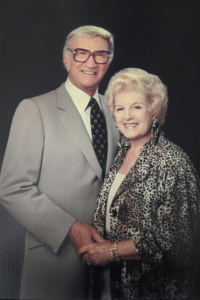 Lee and Toni Leichtag established the Leichtag Foundation in 1991 following the sale of their business. Lee and Toni were lifelong entrepreneurs with a passion for innovation and for supporting talent. They believed that only with big risk comes big reward. Both born to families in poverty, Toni to a single mother, they strongly believed in helping those most in need and most vulnerable in our community. While they supported many causes, their strongest support was for young children and the elderly, two demographics who particularly lack voice in our society.
Lee and Toni Leichtag established the Leichtag Foundation in 1991 following the sale of their business. Lee and Toni were lifelong entrepreneurs with a passion for innovation and for supporting talent. They believed that only with big risk comes big reward. Both born to families in poverty, Toni to a single mother, they strongly believed in helping those most in need and most vulnerable in our community. While they supported many causes, their strongest support was for young children and the elderly, two demographics who particularly lack voice in our society. Lifelong Baltimoreans, Rabbi George and Alison Wielechowski and their sons, 11-year-old Lennon and 9-year-old Gideon, are more than pursuing the good life in Southern California. Having moved to San Diego more than three years ago, they are fulfilling a lifelong dream.
Lifelong Baltimoreans, Rabbi George and Alison Wielechowski and their sons, 11-year-old Lennon and 9-year-old Gideon, are more than pursuing the good life in Southern California. Having moved to San Diego more than three years ago, they are fulfilling a lifelong dream.
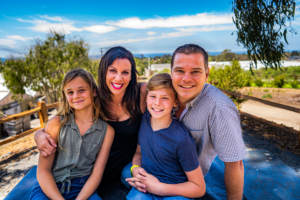
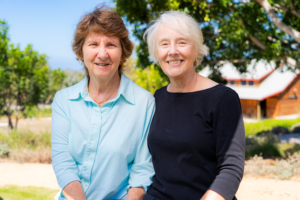

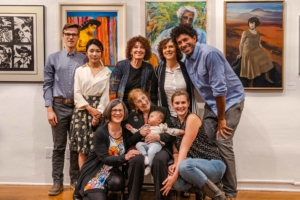
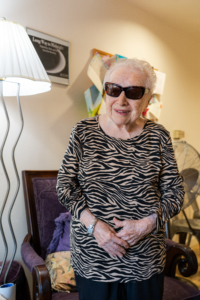

 You would think that as the executive director of San Diego LGBT Pride, Fernando Zweifach López Jr., who uses the pronoun they, has done all the coming out they possibly can. A queer, non-binary individual who has worked for many years on civil rights issues, López also speaks openly and often about their father’s family, Mexican-American migrant workers who tilled the fields of rural California.
You would think that as the executive director of San Diego LGBT Pride, Fernando Zweifach López Jr., who uses the pronoun they, has done all the coming out they possibly can. A queer, non-binary individual who has worked for many years on civil rights issues, López also speaks openly and often about their father’s family, Mexican-American migrant workers who tilled the fields of rural California. Stacie and Jeff Cook understand commitment. They live it.
Stacie and Jeff Cook understand commitment. They live it.
